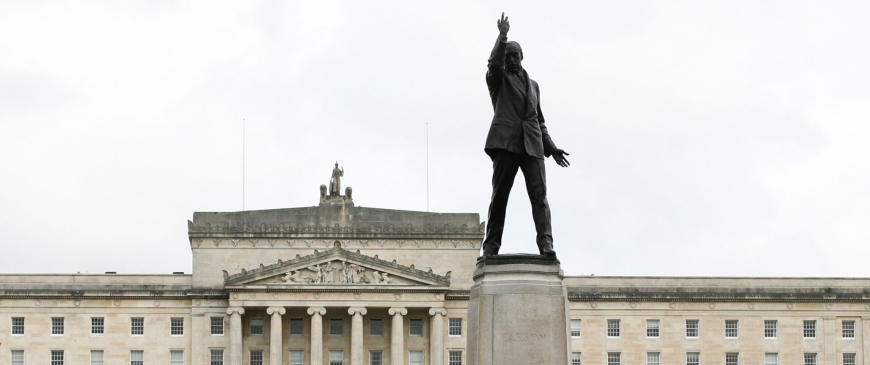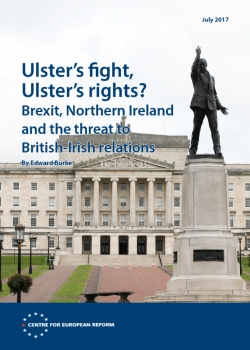
Ulster's fight, Ulster's rights? Brexit, Northern Ireland and the threat to British-Irish relations
- The failure of Prime Minister Theresa May to secure an overall majority for her Conservative Party on June 8th has given Northern Ireland’s largest party, the Democratic Unionist Party (DUP), significant political leverage at Westminster. The DUP secured an additional £1 billion in public funding for Northern Ireland in return for supporting the government in parliament.
- The DUP says that it wants Northern Ireland to leave the EU on the same terms as the rest of the UK. It also says that it does not want a ‘hard border’ with Republic of Ireland. If Theresa May sticks to her stated aim of leaving the single market and the customs union, there will have to be some sort of border; but it is unlikely that the DUP will withdraw its support for the Conservative government in that event.
- Brexit has shaken the foundations of the peace process in Northern Ireland. The majority of Ulster’s voters opposed Brexit, and Irish nationalists in the province believe that the constitutional changes it requires will reverse many of the gains of the Good Friday Agreement.
A return of border controls on the island of #Ireland would weaken the #GoodFridayAgreement.
- In the coming Brexit negotiations, London should acknowledge Northern Ireland’s unique relationship with the EU. A distinctive EU status for Northern Ireland, committing London and the 27 to maintaining many of the EU’s structural and Ulster-specific programmes would help to limit the fallout from the UK’s exit.
- In the event that the EU and the UK fail to agree quickly on a comprehensive free trade agreement, Brussels could work with London to create a specific regime for Irish and Northern Irish goods and services (including and beyond the exposed agri-food sector), exempting them from tariffs and most customs checks if they remain on the island of Ireland.
#Ireland’s #EU membership will always take precedence over bilateral relations with the UK.
- The Brexit-supporting DUP – always suspicious of any distinction or separation from the ‘mainland’ – needs to be persuaded, particularly by Dublin, that a tailored relationship between Northern Ireland and the EU is not a deliberate, disguised route to Irish unity. Meanwhile, Northern Ireland’s nationalist community will remain deeply sceptical about the role of the British government as long as it is dependent on unionist votes for its majority at Westminster.
- Existing sophisticated smuggling and terrorist networks will seize upon opportunities for criminality – particularly the evasion of tariffs – if a customs border is introduced. A swiftly negotiated joint EU-UK customs agreement would ease the bureaucratic pressures, costs and security risks.
#EU #JHA agencies and mechanisms are increasingly important to British-Irish #security interests.
- The UK will have to work to persuade the Irish government to invest in its policing and intelligence structures if the Common Travel Area is to be secured. Brexit creates new pressures on previously excellent British-Irish security co-operation. It is likely that the UK will have limited access to many Justice and Home Affairs mechanisms, including the European Arrest Warrant, with serious consequences for cross-border security co-operation.
- Freedom of movement on the island of Ireland is likely to continue as both countries are outside Schengen. There is little evidence to support claims that EU citizens will use Ireland as a back door to live illegally in the UK – potential EU migrants are unlikely to find such a prospect attractive.
Edward Burke is Lecturer in Strategic Studies at the University of Portsmouth. He was a foreign policy fellow at the CER from 2011-12.


Comments